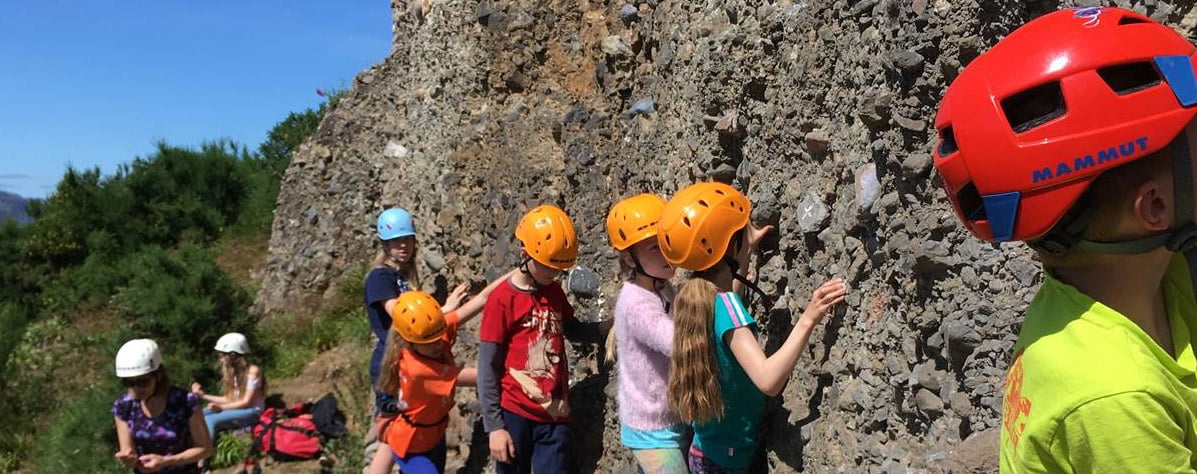Climbing is an awesome sport that can have a very positive influence on people, especially when activities are led by people who place wellbeing first.
The ClimbScotland team and Mountaineering Scotland take peoples wellbeing and safeguarding very seriously, with the aim of ensuring that people stay safe and have fun while taking part in climbing. Read our policy below and find out where to go for further information, guidance or training if you are a volunteer, instructor, coach or official, working within the climbing and Mountaineering Sector.
10 Steps to Safeguarding Children in Sport
The 10 steps are a collection of guidelines, good practice, practical advice and template procedures and policies – all tools which can help keep people safe in sport.
- They are for any club, sports governing body or organisation providing activities for children under 18 years or vulnerable adults.
- Can be used to look at what you already have in place, confirm the positives and identify gaps.
- Can help a new member of staff or volunteer taking on the role of a Child Wellbeing and Protection Officer to understand the range of responsibilities, procedures and guidelines.
The 10 Steps are inclusive of the minimum operating requirements for protecting children in sport. They also take account of updated child protection guidance, practice and legislation.
Download the 10 Steps to Safeguarding Children in Sport from the Children 1st website.
Child Protection Policy
Mountaineering Scotland recognises that child protection is every member’s responsibility and that we should safeguard all children involved in youth climbing activities organised by staff or volunteers. All members have a right to protection, and Mountaineering Scotland’s policy is inclusive and takes full account of the needs of able-bodied and disabled children, and others who may be vulnerable.
Safeguarding and Protecting Children Training
Sportscotland provide the first steps in child protection training called ‘Child Wellbeing and Protection in Sport’ (CWPS), which are perfect for volunteers, coaches and instructors working with young people or vulnerable adults. Module 1 is theory based eLearning and Module 2, a 3 hour face-to-face scenario based learning. The main change from SPC is that each learner booked onto a CWPO course MUST completed Module 1 before attending the face-to-face Module 2.
Further training and advice
We work closely with Children 1st who support volunteers and staff in sports organisations across Scotland to keep children safe by providing advice, consultancy and training on the development and implementation of child protection policies, procedures and good practice.
Child Wellbeing and Protection in Sport Tool
What is the Child Wellbeing and Protection in Sport (CWPS) Tool? It is a self-assessment and action planning tool that has been developed to support sports clubs and organisations in creating a positive and safe culture for children and young people. It is based on the Standards for Child Wellbeing and Protection in Sport , which all sports clubs and organisations should strive to meet.
Advice on bullying
Respectme work with all adults involved in the lives of children and young people to give them the practical skills and confidence to deal with children who are bullied and those who bully others.
- Visit the Respectme website
Safeguarding for youth climbing clubs
Find out where to go for further information, guidance or training if you are a volunteer, instructor, coach or official, working within the climbing and Mountaineering Sector.
Contact the Mountaineering Scotland Wellbeing and Protection Officer
If you have any queries or concerns regarding the safeguarding of children and vulnerable groups in climbing, then please contact Child Wellbeing and Protection Officer Jamie Smith (ClimbScotland – Development Manager) at
This e mail is monitored Monday – Friday | 9am – 4:30pm
Out with these hours contact the police or local social work team where a child’s immediate safety is at risk. Links to local services can be found here.
Otherwise contact Children 1st on 0141 419 1156 or fill in the online form accessed here

